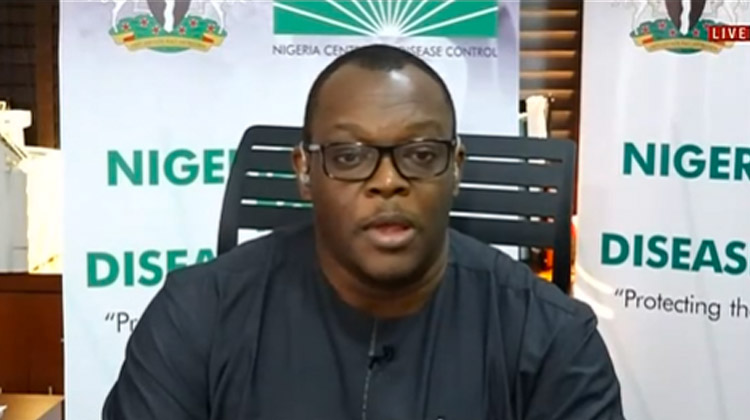As Nigeria joins the rest of the world to mark this year’s World Antimicrobial Resistance Awareness Week (WAAW), experts say there is need for increased awareness and efforts among the population, government and policymakers towards preventing and reducing further emergence and spread of Antimicrobial Resistance (AMR).
They said AMR has become a threat to humans, animals and the environment.
According to the Coordinating Minister of Health and Social Welfare, Prof. Muhammad Ali Pate, AMR is a hidden epidemic that has not been properly attended to. “A small antibiotic used in feeding animals gets its way into pathogens that affect humans,” he said.
AMR occurs when bacteria, viruses, fungi and parasites change over time and become resistant to (or no longer respond to) medicines, making infections harder to treat and increasing the risk of disease spread, severe illness and death.
Missing radio tower: NSCDC takes responsibility, begins investigations
Ondo in ‘coma’ as Akeredolu hangs on to power
As a result of drug resistance, medicines become ineffective, and infections become increasingly difficult or impossible to treat. That is why AMR ranks among the top 10 global health threats worldwide.
The Nigeria Centre for Disease Control and Prevention (NCDC) said AMR is a great threat to quality healthcare services in the country, making it a top national priority.
It said antibiotics are widely used for the treatment of infections in humans and animals, adding, however, that misuse of antibiotics leads to AMR, whereby the drugs are ineffective against disease pathogens.
“Concerns over the increased spread of AMR have led to a call for action to reduce the misuse and overuse of antibiotics in humans and animals,” the agency said.
The World Health Organisation (WHO) Regional Director for Africa, Dr Matshidiso Moeti, said resistance to commonly used antimicrobials, including antibiotics, is a global health challenge that poses grave risks to the public.
She said AMR “jeopardises our ability to treat common infections, increases the cost of treatment, and disrupts the progress we have made in combating diseases, posing a grave challenge to our communities, health systems, and economies.”
She said antimicrobial-resistant infections caused 1.27 million deaths globally in 2019, more than HIV/AIDS and malaria combined. Sub-Saharan African countries bear the highest burden of AMR-associated death rates, at 99 deaths per 100,000 people.
“We need to take urgent action and address the main causes of AMR, which include misuse and abuse of antimicrobial medicines, lack of access to clean water, sanitation and hygiene; poor infection prevention and control practices; inadequate use of vaccines to decrease infections; inadequate laboratory capacity, including equipment and reagents to guide proper treatment; poor waste disposal practices; and the presence of antimicrobials in food-animal production and crop protection, as well as the environment and water bodies,” she added.
WHO Representative and Head of Mission, Dr Walter Kazadi Mulombo, said in Nigeria alone, in 2019, there were 64,500 deaths attributable and 263,400 deaths associated with AMR from pathogens such as S. pneumoniae, K. pneumoniae, E. coli, Staph aureus, etc.
My experience with AMR – Survivor
Sharing her experience during the programme, Vanessa Carter, an AMR patient survivor and Chair of the WHO Taskforce of AMR Survivors, said, “In 2004, I was 25 years old. I had a severe car accident in Johannesburg, South Africa, and ended up in a hospital with a lot of massive injuries.
“I had been resuscitated on the side of the road, I was put on life support, I had multiple fractures in my face—a broken jaw and a broken nose—and also lost one eye. I also had a head injury, major abdominal injury, fractured pelvis, neck, and back injury. But the most complicated injuries were to my face, and it took me 10 years to recover from them, during which time I have had four different facial prosthetic implants,” Vanessa said.
But the worst was yet to come. Six years into the accident and after her fourth implant, one day, while getting into her car, Vanessa saw moisture seeping all over her face. It was pus oozing out of her fourth implanted prosthetic.
She underwent emergency surgery, and the doctors did “debridement” and reconstructive surgery to fix up the damaged tissue. Two weeks later, the infection returned. She got more tissue reconstruction done. But the infection kept on returning, and it worsened over time. This went on for the next 11 months, during which she was kept under the care of several specialist surgeons.
Vanessa, who is also a One Health advocate and founder of the AMR Narrative, was eventually diagnosed with a highly antibiotic-resistant form of MRSA (Methicillin-resistant Staphylococcus aureus) infection.
She could not undergo any more surgeries for one year, as the doctors had to wait for the tissue to recover. “I had to cover my face, as I looked terrible. My face was very red, full of fluid, and swollen. I could not wear my artificial eye. I could not go to fetch my child from school because the kids would get scared looking at me,” she recalls.
“I lost 10 valuable years of my life between 25 and 35 years of age, being in and out of hospitals, and not being able to look in the mirror without seeing a changed face. I nearly got a bloodstream infection and sepsis and almost died.
“But I am also living with a severe disability now—facial disfiguration, which was partially caused by the accident but exacerbated by the fact that we could not treat this infection. When I learned about antibiotic resistance, it came as a surprise as to why it was not common knowledge, even though it is such a widespread global threat,” she shared in the forum.
Philip Mathew, Technical Officer, World Health Organisation (WHO), said the drivers of AMR are in several sectors. He said, “Misuse or overuse of antimicrobials happen in human health, animal health, food and agriculture, and several other sectors.”
Thomas Joseph, Head, AMR Awareness, Advocacy and Campaigns (WHO), said there is a huge burden of morbidity and healthcare expenditure that can affect household welfare severely.
Speaking at a recent pre-conference meeting of the 22nd International Conference on AIDS and STIs in Africa (ICASA), Thomas also said that there are several issues of access and equity affecting AMR.
He said, “Research and development of new treatment options, including new antibiotics, is not prioritised due to a sector-wide market failure. As a result, we are running out of treatment options, and new drugs are not coming into the market.
“Governments should strengthen their health systems and push for universal health coverage so that all have access to the needed antimicrobials prescribed by registered healthcare providers.”
One Health approach
WHO says the One approach is an integrated, unifying approach to sustainably balance and optimise the health of people, animals and our environment. By linking humans, animals and the environment, One Health can help address the full spectrum of disease control and contribute to global health security.
Javier Yugueros-Marcos, Head of Department, Antimicrobial Resistance & Veterinary Products at the World Organisation for Animal Health (WOAH), said the health of humans, animals (domestic and wild), plants, and our environment are closely interlinked and interdependent.
He said this means that whatever happens to one of them, the others will be inevitably affected and impacted for better or for worse, adding that “we cannot ignore one at the cost of another.”
Also recently, the DG NCDC, Dr Ifedayo Adetifa, said the importance of One Health cannot be overstated. He said, “Our world faces complex and interrelated health challenges, ranging from zoonotic diseases to antimicrobial resistance, and the overarching threat of climate change.
“These issues know no borders, and they impact not only human health but also the well-being of animals and the environment. To address them effectively, we must adopt a collaborative and holistic approach.”
Adetifa, urged Nigerians to handle antimicrobials with care by doing the following:
– Seek professional consultation to conduct a laboratory test to guide the use of antibiotics and other antimicrobial agents, e.g. antimalarials for yourself, your family, pets and other animals you care for.
Complete the dose of antibiotics as prescribed by a licenced health worker or veterinarian in the case of use on animals.
Farmers must observe withdrawal periods for animals of food origin before slaughtering.
Do not share or use leftover antibiotics.
Dispose of leftover antibiotics properly.
Practice hand hygiene and environmental sanitation consistently.
Vaccinate your family, children, and animals appropriately.
He said the Federal Government of Nigeria remains committed to contributing to the global response to AMR and sustaining advocacy for the responsible use of antimicrobials.
Dr Adetifa said to effectively reduce AMR, all sectors must use antimicrobials prudently and appropriately and take preventive measures to decrease the incidence of infections.

 Join Daily Trust WhatsApp Community For Quick Access To News and Happenings Around You.
Join Daily Trust WhatsApp Community For Quick Access To News and Happenings Around You.


